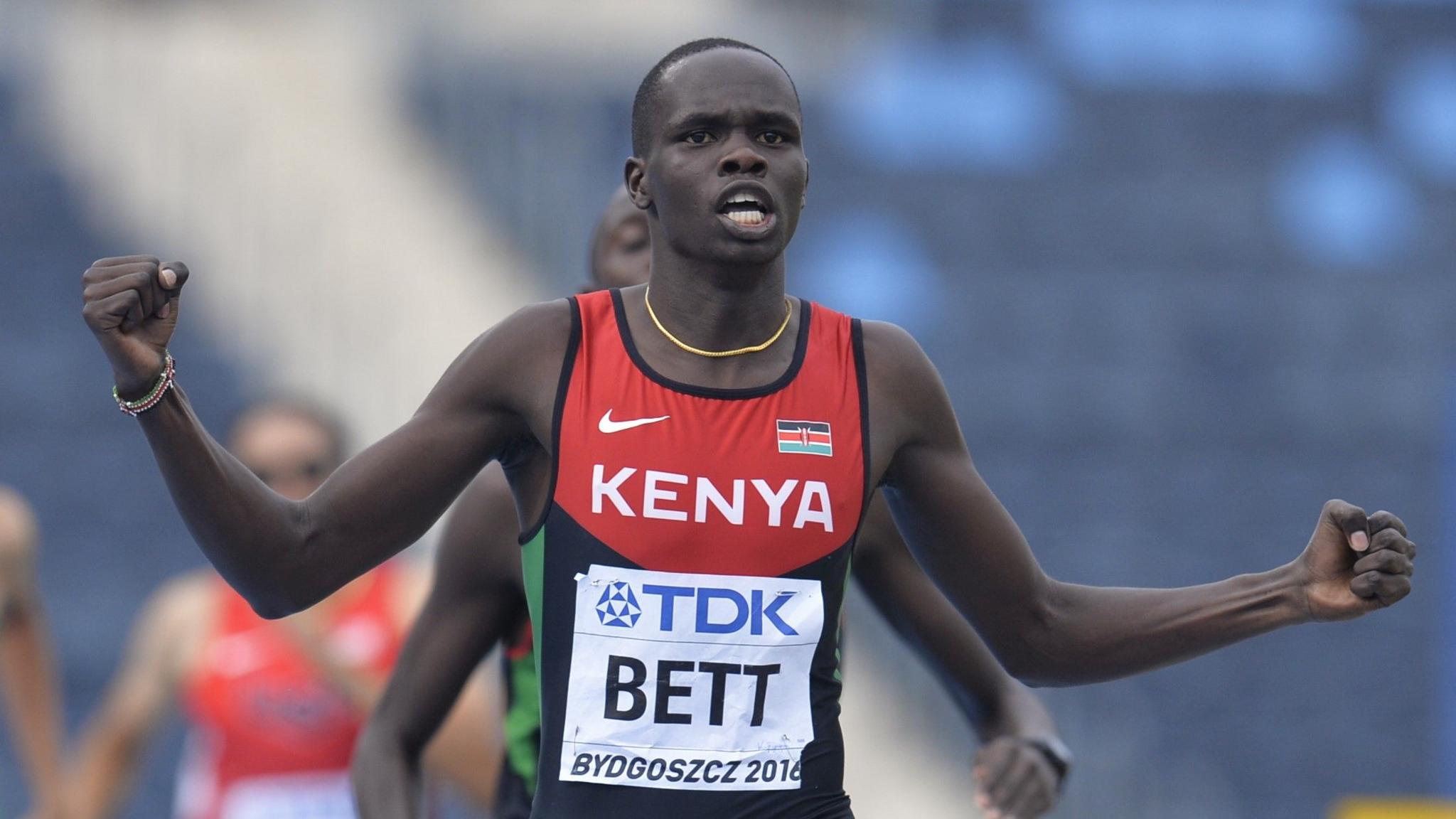Former world under-20 athletics champion Kipyegon Bett has died aged 26 in Bomet, Kenya, following a short illness.
The 800m specialist won his junior world title in 2016 and then took bronze at the senior World Championships in London the following year.
However, his career was halted in 2018 when he was handed a four-year doping ban and he struggled on his return.
“He had been sick, complaining of stomach pains for about a month. The doctors said he had a liver problem and had been in and out of hospital,” his sister Purity Kirui told BBC Sport Africa.
“Last week we took him to hospital after he started vomiting blood and he was admitted. I went to see him [on Sunday] morning and he told me he was in pain.
“He told our dad, who is a pastor, to pray for him because he didn’t feel he would survive and after 12 noon he died. We tried everything to save him, but he left us. It’s very painful.”
Athletics Kenya official Barnaba Korir described Bett as “one of the most talented half-milers” in the world and a “polite, easy-going and extremely amiable” athlete.
Derailed by drugs ban
Bett was one of Kenya’s high-profile athletes sanctioned for anti-doping violations by the Athletics Integrity Unit.
The runner was suspended in August 2018 for refusing to submit a sample and he subsequently tested positive for erythropoietin (EPO).
Kirui, a 3,000m steeplechase runner who won Commonwealth gold in 2014, said being absent from the track had an adverse effect on Bett, who was 20 at the time of his ban.
“When Kipyegon was banned he started drinking a lot, wouldn’t eat well and suffered depression,” a tearful Kirui said from their home in Bomet.
“We tried to help him stop drinking, but whenever we wanted to take him to rehab he would disappear from home for days.”
Bett’s period of ineligibility ended in August 2022, but he struggled to return to a sport where he once commanded respect.
 Image source: Getty Images
Image source: Getty Images
Image caption: Bett’s world under-20 title came in the Polish city of Bydgoszcz
“I tried to get him back into athletics when his ban ended by getting him running kit and shoes,” Kirui explained.
“Before his death we had a plan to try one more time to take him to a rehabilitation centre in Kisumu.”
Bett was the fourth child among six siblings and took up athletics to follow in his sister’s footsteps.
“Bett joined our training group when he was in primary school because he was inspired by Purity to run,” Japheth Kemei, Kipyegon’s coach, told BBC Sport Africa.
“He was a gifted athlete who even beat [800m] world record holder David Rudisha in a race. That showed he had high potential.
“I expected him to come back to athletics once his ban was over, but he couldn’t do so due to many challenges.
“I think sometimes once an athlete is banned there’s some depression and getting into activities that cannot support an athletics career.”
‘Impact of doping always catastrophic’
Kenya has made substantial investments in its anti-doping efforts since the 2016 Rio Olympics, but over 70 of its athletes have been sanctioned over the past three years.
The World Anti-Doping Agency recently raised concerns with Kenya’s sports ministry over the government’s major cut in the operational budget for the Anti-Doping Agency of Kenya (ADAK) from the previous year, citing the potential impact on Kenyan athletes.
ADAK’s annual budget was reduced from 288m Kenyan shillings ($2.32m, £1.71m) to 20m Kenyan shillings ($155,000, £119,000).
Barnaba Korir, who is youth development director of Athletics Kenya, has warned of the effects of doping following Bett’s death.
“The impact of doping is always catastrophic, especially for a young and inexperienced lad,” Korir said.
“We wish those who introduce such evil machinations to young souls can understand the implications of such chemicals and the mental damage, even if they are not caught.”

